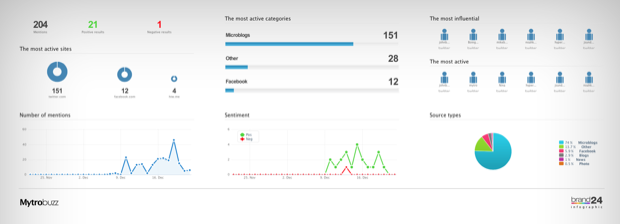My crowdfunding campaign is fully funded now and I’m preparing metrics and other measurements to help us both understand some best practices for crowdfunding. But, until then, I wanted to comment a bit on the problems facing crowdfunders when it comes to marketing and sales. I’m a writer and it’s almost as if I’m naturally averse to self-promotion. That is exactly the wrong way to be. It’s fortunate that our own Jim Altucher just posted a great checklist for folks who are trying to sell so I won’t have to go into much of the how-to. Instead I’ll address the conflicting problems facing shy crowdfunders who may find themselves at the precipice of self-promotion.
First off, remember that you are mostly selling to friends and family, at least in the beginning. They will support you no matter what happens. The vast majority of my pledges are from people I’ve met or count as friends. I’ve also discovered that social reach – posts to people who know of me or I’ve met in passing – are weak drivers to success. For example, take a look at this very cursory analysis from brand24.net, a social media analytics service.

The top supporters, on the upper right, are close friends who have done their absolute best to get the word out. So I have a lot of these “golden influencers” or whatever you want to call them. What should I do with them?
In short, I have to sell to them and then sell to their friends. And just writing that line pains me.
Modern crowdfunding is about relationships. If you have a lot of them, you will be successful. If you only have a few, you will not be successful. These relationships can be geographically local or worldwide, but they have to be close. As Sam Beck wrote “if you can’t hit 5% of your goal within your private network, you are probably in a bad spot.” I’d say I sold 50% to friends. I think hometown projects – efforts to open a new green hackerspace or coding dojo or bakery in a certain city – are great examples of this. If no one knows you in town as the guy who makes great cakes, you’re probably sunk.
So here’s the dilemma: I like to treat relationships, online or off, as spin-free zones. I’ve never been “in sales” per se, so I’ve never had to milk my network to get something done. As a writer for some fairly big sites I’ve always depended on the work to bring the audience. This is obviously a false correlation – the outlets I’ve written for have always been amazing in their own right – but it’s how I went about my business. I didn’t care about SEO, for example, because I trusted Google to be a beneficent god. That is another wrong way to be.
Sadly this attitude is one of the main reasons writers love publishing houses. Because publishers can throw a whole team of people towards distribution and PR – and, sadly, this team is increasingly shrinking for most authors – they mask most of the hard work and selling that goes into a successful launch. Unfortunately, when you depend on this network you will find yourself disappointed. The majestic houses can only do so much and each new book is a laugh in a crowded room and easily swallowed up by the next conversation. They’ll through millions at big blockbusters but pennies at the next literary novel.
I don’t want this series to be about marketing but it looks like it has to be. As a crowdfunder or a modern author or a modern maker you must be ready to sell. I created a 5,000 name email list that I use sparingly to hassle business acquaintances and those interested in my work. I post to social media as much as I can, although, as evidenced above, the return is limited. I change my tone from silly to serious when I talk about this work and those who know me as that jerk from the Internet now know me as that jerk from the Internet who is flogging his book. I am, at this point, a small businessman handing out fliers on the street corner.
To the serious artist marketing is seemingly unsavory. But friends, let me tell you: serious artists are the best marketers. Whether it’s by ensconcing themselves in a scene or become the mouthpiece of their genre or style, all the best artists have been carnival barkers for Product Me. There are still ways to become popular without word of mouth and endless boosterism, but that’s far harder than it seems. It’s akin to my own sense that my work grew organically – it didn’t. It grew through the quiet push given it by the platforms on which I wrote. The Pebble didn’t get big because Eric Migicovsky posted his Kickstarter and hung out in Canada waiting for riches. It got big because of outreach, media contacts, and traditional marketing methods.
So what am I doing on that front? I’m looking for opportunities to offer interviews or commentary on crowdfunding to other outlets. I’m reaching out to book bloggers. I’m also just making things up as I go along. I need to grow the potential audience for the book. I think of this as sort of a reverse bullseye of sorts. At the center of the bullseye are friends and family. Further out are “fans” – people who like you. Even further are strangers interested in what you’re selling and this is dwarfed by the rest of the world. We should all be able to hit the bullseye without trouble. Everything else is far harder.
The results are startling and heartening. For example, my buddy Clive Thompson who is selling his own great book about technology, wrote me a nice note when he found out about my funding. I hope he doesn’t mind me posting it here.
“No need to reply, I know you’re busy,” he said. “Just wanted to say congratulations … I’m always thrilled when I see people finding cool ways to fund the creation of awesome new literature.” This makes me feel good and it shows that my efforts, however self-promotional, are at worst a minor nuisance. I respect Clive and his work and it’s great to hear from him in the context of something I’m working hard to build. That he hasn’t yet unfriended me is probably more a tribute to his patience than my skills at sales, but it’s nice to know he’s paying attention.
This is part of a series on crowdfunding, The Mytro Project. For future posts I’m looking for more input from online analysts and other crowdfunding platforms so please email me at john@beta.techcrunch.com.































Comment